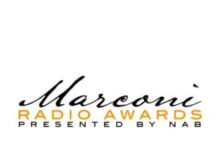
(By Matt Sunshine) Is your sales team working the same way radio sales were being run 10 years ago? If so, and you are not getting the results corporate is expecting, there’s a good chance you need to update your sales playbook.
“Sales playbook” refers to the rules, guidelines, standards, and best practices you use when presenting your station and selling solutions. When you have a solid playbook, sales-enablement tools, like software that tells you when an e-mail has been opened or when someone downloads a case study from your website, can give you extremely powerful information. And powering your updated playbook with a customer relationship management system (some popular CRMs: Salesforce, Hubspot) will lead to even more success.
If you answer “No” or “I don’t know” to most of the following questions, you need a new sales playbook.
E-mail (Answer each question “Yes,” “No,” or “I don’t know.”)
1. Do you know how many e-mails you have sent to individual prospects in the last 90 days?
2. Do you know how many have been read? Responded to? Clicked on?
3. Do you know how many have been focused on helping with their customer journey?
4. Do you know how many led with an insight?
5. Do you know how many were mostly about “checking in”?
6. Do you know which e-mail templates are most effective?
Sales Content
1. Do you have specific content/resources/e-mails salespeople can use during certain stages of the buyer’s journey and sales process?
2. Do you have specific content/resources/e-mails salespeople can use to overcome specific objections they hear?
3. Do you know which efforts are driving the best sales results?
Phone Calls/Meetings
1. Do you know how many phone calls were made with prospects in the past 90 days?
2. Do you know how many meetings happened in the last 90 days?
3. Do you know how many attempted calls were made
to engage?
4. Do you know how many of the voicemail messages left have been returned?
5. Do you know what prospects are doing on your website after or before you have a call or meeting?
Sales Cycle
1. Do you know what the time interval is between client touches, and are you losing business due to the time between contacts?
2. Do you know how much time you are spending as a salesperson on certain activities? And which are paying off the best?
3. Do you know what the length of your sales cycle is (from lead gen to close)?
4. Do you know the average length of time between each step in the sales/buying process?
5. Do you know which steps are most important to the buyer?
6. Do you know when a deal is stalled in a particular step? Are you notified?
Prospecting and Leads
1. Do you know which prospects you should focus your efforts on/prioritize?
2. Do you know the percentage of leads that are qualified?
3. Do you know where your best leads are coming from and how they’re finding your business?
4. Do you know how many prospects convert into appointments?
5. Do you know how many appointments convert into proposals?
6. Do you know which types of leads are converting and which are not, by AE and team?
Salesperson Success
1. Do you know where some salespeople excel, and where others need to improve?
2. Do you know which salespeople on your team have the highest activity? Highest conversion rates? Highest revenue performance?
3. Do you know why you won or lost certain business, and are there trends related to that?
4. Do you know how your salespeople compare to each other in activity and different conversions?
Proposals
1. Do you know how many proposals have been created and presented in the past 12 months?
2. Do you know how many you have won? Lost? And why?
3. Do you know the average amount of time it takes from when you present to getting a yes or no?
4. Do you know how often prospects buy, and if they buy exactly or almost exactly what you presented?
5. Do you know how long they view a proposal and which pages they spend the most time on?
Remember, if you answered no or “I don’t know” to a majority of these questions, it’s time to consider getting yourself a new sales playbook powered by sales enablement tools and a CRM.







I agree. And after you blow up the existing sales model, implementing technology to track, analyze and report sales activity is a good next step. Just like the sales process evolving, so is the technology that you use to manage it. When I sold media our team used Excel spreadsheets to forecast, manage my call list, and document my activity with notes. Now solutions exist with CRM functionality, business intelligence, and one hub to view all integrated software data need for the sales success.